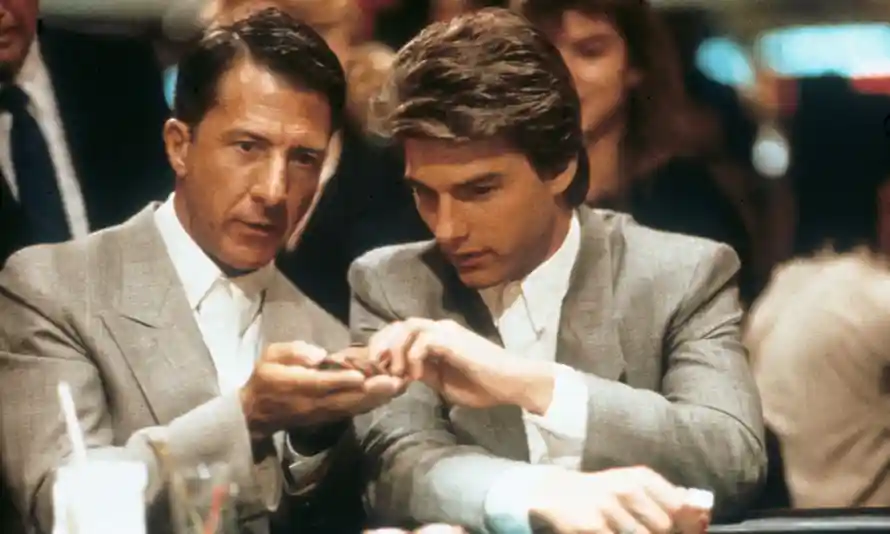Cinema and TV, not so long ago, were the place of fairly binary concepts. Everyone who was on the screen, both big and small, was of a particular type, and arguably the artform only represented a very small portion of society. Thankfully, things have moved a great deal in a relatively short period of time.
This means that most sections of the community, especially those from minority groups, are now present and making their collective voices heard. Perhaps the last section of society to really start to be seen, again relatively recently, were those with some form of mental or physical ‘disability.’
For whatever reason, this was one boundary that took longer than any other to be truly reflected on our TVs and cinema screens. Unlike the representation of minority groups, up until now, most of the characters that have some form of mental ‘disorder’ have been represented by actors playing the part as opposed to those who are from the group itself, but perhaps in time, this too will change.
There are increasingly more representations of those with such disorders, and if we look specifically at those with autism, and that’s a broad spectrum of people and their disabilities, there are a number in recent years that could be described as being effective, fair and even groundbreaking in terms of the inclusiveness that comes from the portrayal of autism in TV shows and films.
Let’s take a closer look at some examples of this.
Raymond Babbitt (Rainman) – Dustin Hoffman
This is perhaps the most well-known example of an autistic character on screen, and it’s one that has divided many in the community. Clearly, the Raymond Babbitt character is something of a caricature; it is one that you could argue did at least bring the subject of autism into the public eye.
There are questionable issues with the depiction and that of his brother Charlie (played by Tom Cruise), but you have to concede that the filmmaker’s hearts were in the right place. The fact that the character is used for financial gain is problematic in the extreme, and the representation of Raymond’s disorder is somewhat over the top, but for its time, it was a big deal.
Rain Man was a movie that was well-received by critics and audiences alike and Hoffman took the time to research the role extensively prior to filming, and it’s something of a benchmark in the portrayal of an individual on the autistic spectrum.
Temple Grandin (Temple Grandin) – Clare Danes
Claire Danes won a host of awards for her portrayal of Temple Grandin in this very well-received TV mini-series. Temple Grandin is a world-renowned animal behaviorist who battled to make a name for herself in her field. She became a leading voice in the autistic community, and Danes did a great job of portraying such a complex character.
The show itself was a big hit, though not a documentary as such; the TV production didn’t feature any stock footage, and the direction by Mick Jackson helped give Danes space to build the character in a sympathetic and not forced manner.
Temple Grandin as a show was a very effective way of showing how autism was treated by medical institutions and society as a whole from the 1950s onwards. It’s, at times, an unflinching account and an important one. Perhaps the greatest aspect of the show is the depiction of an autistic individual triumphing over adversity, and it’s doubly effective as it’s a fairly accurate portrayal of a true story.
Sheldon Cooper (The Big Bang Theory) – Jim Parsons
You could argue that the mere presence of a character who appears to have some form of Aspergers is a positive statement of sorts. The fact that Sheldon Cooper is a much-loved TV persona is in many ways a sign of progress. However, this comes with some significant caveats.
The fact that Cooper’s disorder is considered as something of an eccentricity and one that derives humor from both other characters and the audience as a whole is something of a double-edged sword.
The depiction of a character like Sheldon Cooper does show that autism isn’t something to shy away from, and given the success of The Big Bang Theory, you could argue that the character helps to highlight the disorder and brings it into the homes of millions.
Some drawbacks come from the fact that his disorder is never really diagnosed, and on occasion, some of the jokes that are made at Cooper’s benefit are more than just a little troubling.
Saga Norén (The Bridge) – Sofia Helin
If the character of Sheldon Cooper is one that divides opinion and arguably could be seen to make light of Aspergers, then that of Saga Norén is considered by many to be a far more effective and realistic portrayal of the disorder.
It’s a subtle portrayal and one that, on the whole, has been applauded by the autistic community. We’ve had a few portrayals of detectives that have attributes and characteristics that might put them on the autistic spectrum, perhaps the most recognizable of these being Benedict Cumberbatch’s Sherlock.
However, usually, these portrayals come across as more than a little skeptical. Almost as if the disorder is in some way used as a beneficial tool to aid a narrative rather than being a trait of its own. That’s what makes the character of Saga Norén a cut above the rest and a genuinely positive depiction that stands on its own.
